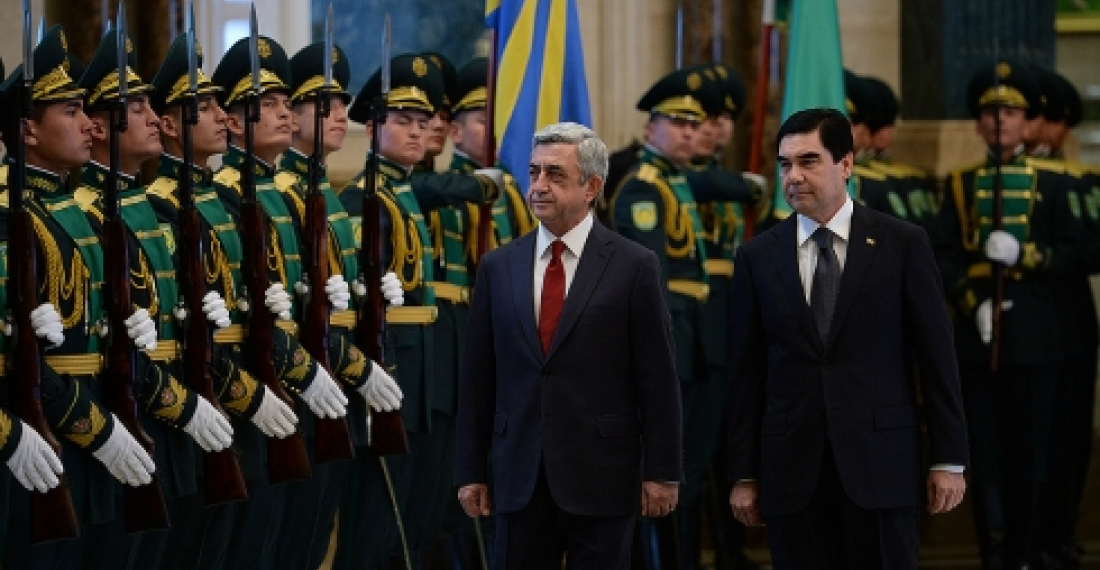The Armenian President Serzh Sargsyan is on an official visit to Turkmenistan at the invitation of the Turkmen President, Gurbanguly Berdimuhamedov . The visit is considered one of significant importance since Turkmenistan also has friendly but complicated relations with Azerbaijan.
After an official welcoming ceremony President Sargsyan met with the Turkmen leader, and afterwards the two sides signed a number of agreements.
A statement issued after the talks said that "during the negotiations , which were held in an atmosphere of friendship and mutual trust, a constructive exchange of opinions took place on issues of bilateral cooperation as well as cooperation in the international arena. The Presidents noted the achievement of consensus on a wide range of issues."
A few days ago the President of Turkmenistan held a phone conversation with the President of Azerbaijan Ilham Aliev. Azerbaijan and Turkmenistan are currently engaged in negotiations on issues related to energy and the delinieation of the Caspian Sea, as well as issues related to the transportation of Turkmen Gas to European markets via Azerbaijan and Turkey.
source: commonspace.eu
photo: The President of Armenia Serzh Sargsyan at the welcoming ceremony on his arrival in Ashgabat on 8 April 2014. Picture courtesy of the Press service of the Republic of Armenia.)







